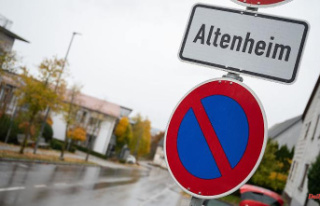Health resorts and facilities are suffering financial losses despite increasing demand for therapy and preventive care. The concern is great - also about what comes after the Corona crisis.
Magdeburg (dpa/sa) - In Saxony-Anhalt, health resorts and resorts are still struggling with the economic consequences of the corona pandemic. Despite government aid programs and short-time work regulations, the financial deficits are enormous. It is therefore necessary to develop a strategy for how the affected municipalities can be helped with their health facilities, said the managing director of the Saxony-Anhalt Association of Towns and Municipalities, Bernward Küper, in Magdeburg.
He spoke out in favor of including a corresponding passage in the Financial Equalization Act, as there is in states like Hesse. "Ultimately, it's about the fundamental question of what these places are worth to us as a society," said Küper.
Meanwhile, the demand for spa and rehabilitation services has increased given the easing of measures to contain the corona pandemic. However, only since April/May 2022, according to a survey of operators by the German Press Agency. “After the Corona crisis, the next big crisis is upon us. There is hardly any air to breathe,” said the spa director of the Eisenmoorbad Bad Schmiedeberg (Wittenberg district), Deddo Lehmann. The reason is the rapidly increasing cost of energy, which is essential for a health resort - from heating, hot water for therapies to laundry - is indispensable. In addition, there are high prices for food and fuel. As a result, people can no longer and do not want to spend as much money, for example on private health care services. On the other hand, it is important to maintain the spa and rehabilitation operations, regardless of rehabilitation patients and the number of private guests.
A spokeswoman for the municipal brine park in Schönebeck/Bad Salzelmen (Salzlandkreis) made a similar statement. "We are seeing far fewer guests than before the pandemic, and the number of visitors has been progressing since April, but by no means as hoped," she said. "But we always have to have staff available to ensure operations, whether at the checkout or at the lifeguard."
In view of the Covid 19 diseases and their consequences, the pandemic has shown what an important contribution the municipalities and facilities are making with their therapy and rehabilitation offers, said the head of the Association of Towns and Municipalities, Küper. The Paracelsus Harz Clinic Bad Suderode has recorded an extreme increase in patients in pneumology (lung diseases), as a spokeswoman announced. In the rehabilitation clinic, the demand for therapies from long-Covid patients has increased enormously, said chief physician Stefan Schwarz.
From January to May of this year, 294 patients with a diagnosis of Covid were registered for therapy at the Paracelsus Harz Clinic in Bad Suderode alone. In the same period last year, there were 156 patients. "It is therefore almost a doubling of the numbers," said the chief physician. It is assumed that the need will continue to increase. Other diseases are treated in the clinic, such as people who have had a heart attack.
Spas, recreation and health resorts are also flagships for the country, which also has an aging population that needs health care and preventive care, said Küper. According to the state administration office, almost 50 places in Saxony-Anhalt have the state rating as a resort, climatic health resort and spa.
The mother/father-child health clinic in Arendsee (Altmarkkreis Salzwedel) is unique in Germany. A spokesman for the German Red Cross (DRK) Saxony-Anhalt, as the body responsible for the facility, said that demand is currently very high due to the additional corona burdens - such as home office, home schooling, restriction of social contacts and increasing family conflict situations.












